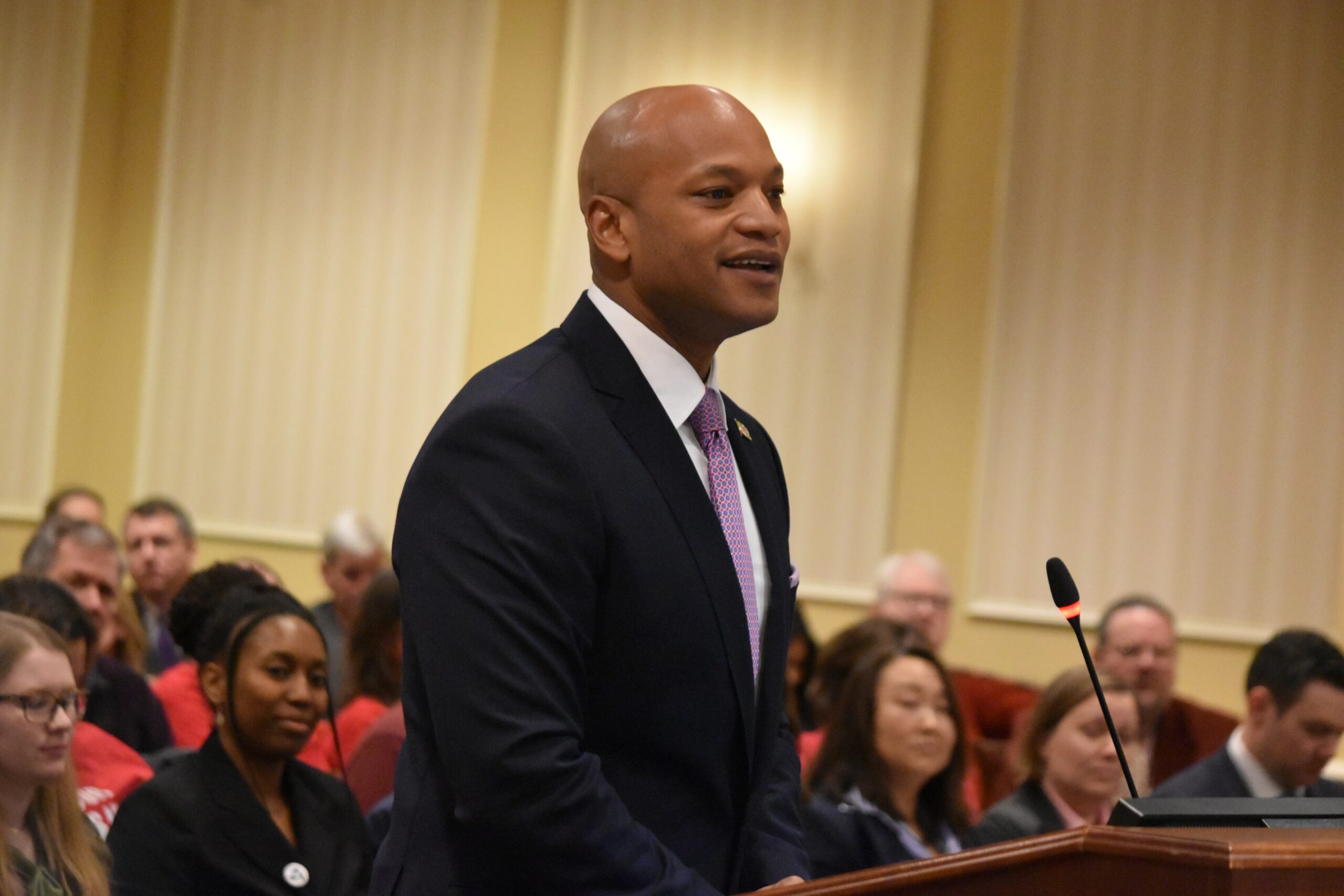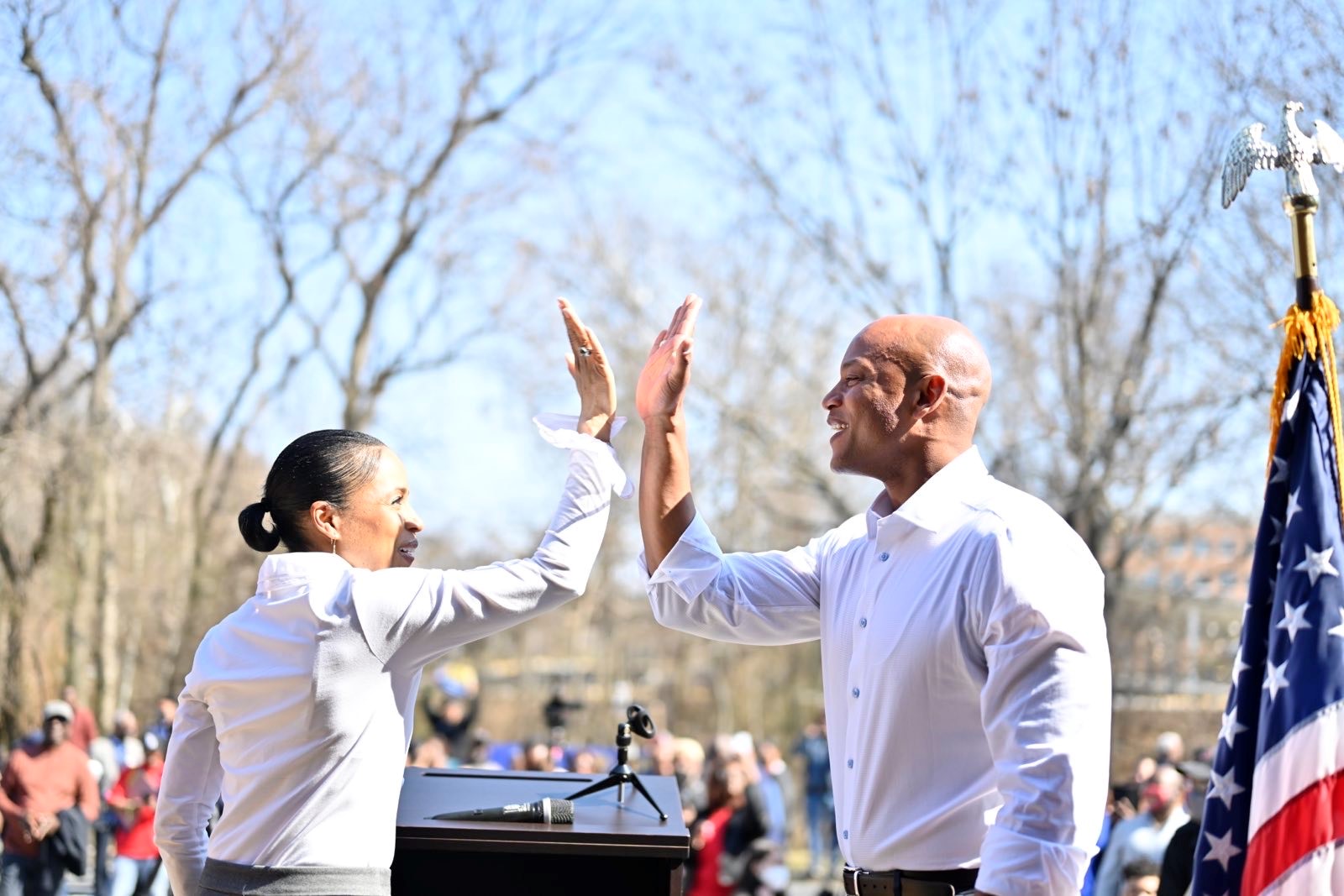As Moore pitches new service year program, Republicans want to debate executive order creating Cabinet-level agency

Senate Republicans are weighing their options as they seek a formal debate over Gov. Wes Moore’s creation of a new Cabinet position.
Moore (D) issued an executive order in his first full day in office that creates a new Department of Service and Civic Innovation. The new agency is meant to be the realization of the new governor’s vision for a service year option for students between high school and college.
Senate Republicans, however, are balking at Moore’s sidestepping of the legislature to implement one of his signature plans.
“I would think all members of the General Assembly would want to have some input,” said Sen. Steve Hershey (R-Upper Shore). “I also think it would be a good idea for the governor to create it in a way where you have a conversation about it, where you’re able to build a constituency that’s in favor of it, bring it in and have a bill hearing for creation of that department. I’m sure it will be created and you can go ahead and move forward but to don’t do it by executive order when there is another process available that includes the General Assembly.”
Hershey and his Republican colleagues said the executive order process is “not the best” when it comes to creating a new department.
The governor, during a hearing on a related bill before the Senate Education, Energy and Environment Committee, acknowledged other avenues to create the department.
“When we pulled together the executive order, it was with the firm understanding that, of course, it falls within the legal boundaries, that the governor has had the authority to be able to create this type of platform, which is one of the issues, but also knowing that this bill was actually done in partnership with many members of the legislature,” said Moore, responding to questions from Sen. Jason Gallion (R-Cecil and Harford).
Moore announced the creation of the department in January just 24 hours after being sworn in. State law gives incoming governors the opportunity to reorganize government through executive order in the first year of the term. That power includes the creation of new Cabinet-level departments.
The legislature then has 50 days to disapprove the resolution. If the legislature takes no action, the executive order is implemented. A simple majority in either chamber would be enough to derail the order.
Republicans, who make up just 13 of 47 seats in the Senate and 39 of 141 seats in the House, would need a lot of help from Democrats to pass a resolution defeating Moore’s executive order by the March 11 deadline.
Senate President Bill Ferguson (D-Baltimore City), speaking to members of the Senate Rules Committee, said challenge to an executive order typically comes in the form of a resolution. The presiding officer said the lack of a resolution leaves only Moore’s proposed legislation as an avenue for having a debate on the creation of the department.
Sen. Mary Washington (D-Baltimore City and County) said one way of addressing the concerns is to formally write the creation into Senate Bill 551, Moore’s service legislation.
“I’m sure that the governor wouldn’t mind us codifying the executive order in some kind of way. So, if that’s a sticking point, simply taking your executive order and putting it in the bill that we have before us, it’s the same part of the code.”
Moore has yet to name the leader of his new department. He promised senators one “in short order.” Even so, his legislation presumes creation of the department. It also establishes parameters for participation as well as a budget. If passed, the program would become the first of its kind in the nation.
“We also know that once that person comes on board and once that person is accepted, we also want to have a strong frame that they’re walking into,” he said. “And so as the nominee of course, they’re going to be active partners with you all but we don’t feel the need to wait.”
In the first year, the program is expected to take on as many as 200 participants, who would each receive a $3,000 stipend. Those costs are assumed to be already budgeted. However, the costs of the program grow to $3.6 million annually as the goal for participants grows to 2,000 in fiscal 2027. A year later, those costs rise to $6 million while the number of participants remains at 2,000.
The proposed budget earmarks nearly $10 million for the stipends. The amount covers all the costs through fiscal 2028 when it is projected that $1.9 million in additional money will be needed, according to a legislative analysis.
Moore told lawmakers there was no reason not to move quickly to establish the new agency.




 Creative Commons Attribution
Creative Commons Attribution